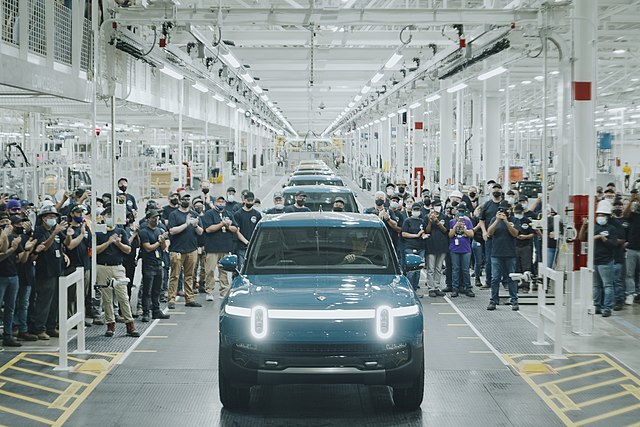After a pause in construction, the Rivian plant in Morgan Country, Georgia makes a return with the help of Senator Jon Ossoff.
The stalled Rivian electric vehicle (EV) manufacturing plant in Georgia is back on track thanks to a significant federal loan announcement by U.S. Senator Jon Ossoff.
The loan, which could reach up to $6 Billion, comes from the U.S. Department of Energy’s Loan Programs Office, with plans to restart construction on the facility in Morgan County.
Senator Ossoff hailed the loan as a major boost for Georgia’s economy and clean energy initiative, stating “My vision is that Georgia should lead the nation in renewable energy, and today’s announcement is a huge step forward.”
“I thank our state’s leaders for working collaboratively to attract this investment and look forward to hosting Rivian and the thousands of jobs that will be created to produce Georgia-made electric vehicles,” Senator Ossoff continued.
Rivian, founded in 2009 by RJ Scaringe, initially focused on producing sustainable vehicles for adventure enthusiasts. Over the years, the company evolved into a serious contender in the EV market against prominent companies like Tesla, attracting investments from major players like Amazon and Ford. Rivian gained widespread attention with its launch of the all-electric R1T pickup truck and R1S SUV.
In 2021, Rivian announced plans to build a $5 billion plant in Georgia, which would produce over 7,500 jobs and produce up to 400,000 vehicles annually. However, earlier this year, construction on the Georgia plant was put on hold as the company decided to focus on launching its newer R2 model at its existing facility in Illinois.
This delay caused concerns, as the plant was expected to be one of the largest economic developments in Georgia’s history.
Despite the pause, Rivian continued preparations on-site, including grading and design work. Tony Sanger, Rivian’s vice president of facilities, confirmed with 11ALIVE Atlanta that once the plant resumes construction, the company aims to begin manufacturing in Georgia by 2028. “We’ve been preparing the site to ensure we can hit the ground running,” Sanger said.
The Rivian plant is a critical part of Georgia’s push to become a leader in renewable energy. While the project promises thousands of jobs, it has also faced scrutiny.
The $1.5 billion tax incentive package used to lure Rivian to Georgia drew criticism from some locals concerned about the potential for community congestion.
Regardless, Ossoff’s office emphasized that the revival of the Rivian project is a key to Georgia’s economic future.
“There was a real risk that the billions in state funds already committed could have been wasted,” Ossoff said. “But with this loan, we’re taking a major step forward in strengthening Georgia’s leadership in clean energy and EV manufacturing,” he added.
As Rivian prepares to restart construction, the plant promises to play a significant role in the nation’s transition to electric vehicles, providing both jobs and a cleaner future for Georgia and beyond.



